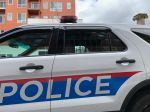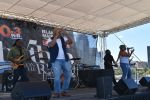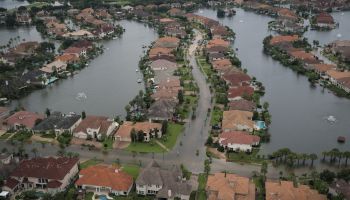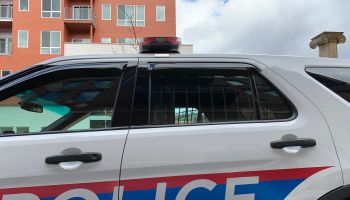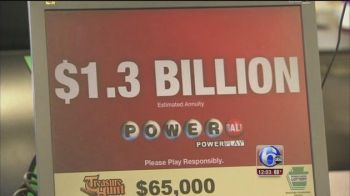React, assess, respond, render aid and rebuild.
Even in the midst of disaster and natural calamity, it’s important for us all to remember one intangible that makes this country one of the leading nations in the world: the ability to set aside differences, come together as one and heal.
As people were still reeling from the violent, despicable tragedy that played out in Charlottesville last month, southeast Texas was crippled by the devastating winds and flooding of Hurricane Harvey. The NAACP would like to say to the Lone Star State: You are not alone in this. We will repair, we will rebuild, we will recover — and we will do it all together.
In dealing with the disastrous aftermath of Harvey, Irma and other hurricanes still to come this season, we must draw upon the lessons we learned from Hurricane Katrina, the monstrous, infamous storm that not only decimated large parts of New Orleans but also revealed many of the challenges with disaster relief efforts.
Twelve years after Katrina first made landfall, some of the impacted communities in the Crescent City have yet to be rebuilt, and many of those individuals and families who were displaced are still a far cry away from home.
Some may have forgotten how the presidential administration at the time took upwards of five days to take action, delaying the emergency aid, care and rescue that tens of thousands of people so desperately needed. They may have also forgotten how the mainstream media depicted African-Americans in distress, portraying them as looters and criminals while routinely describing their White counterparts as helpless victims desperately trying to feed their families by any means necessary.
The images of our Black brothers and sisters—hopelessly stranded on their own rooftops or subjected to abhorrent conditions inside the Super Dome and forced to live among filth and disease—once ingrained in the minds of every news-watching American are now but a fading memory.
Some may forget. But we will always remember.
We particularly remember those who were among the first to offer help and relief in the midst of chaos and tragedy. We remember the survivors who are still persevering to this day, working to put the trauma and loss behind them.
These memories fuel our commitment and dedication in our disaster relief efforts today. Just two weeks after the city of Houston and its residents were the subjects of our thoughts and prayers; our country now contends with the ravages of Irma, the strongest Atlantic storm ever recorded. We have seen the devastation it caused to the beautiful islands of Barbuda and St. Martin. And while we can never mentally prepare for the physical and emotional effects of a storm of such magnitude, we can ensure that we as a country are there to put the pieces back together with the right amount of economic, spiritual and educational resources.
On Friday, September 8, the U.S. Senate passed a $15.25 billion recovery and relief package for the victims and survivors of Hurricane Harvey. The package includes $7.4 billion for FEMA’s disaster relief efforts, $450 million for Small Business Administration (SBA) Disaster Loans and $7.4 billion for the Community Development Block Grant Disaster Recovery program.
This is certainly a step in the right direction. But if there is one thing we learned in the wake of Katrina, it is that disaster relief efforts cannot lay solely in the hands of the government. Each individual and each reputable organization has a social responsibility to lend a hand wherever possible to rebuild affected communities. There is absolutely never a bad time to be a Good Samaritan, and there is always a way to help, financially or otherwise.
Yes, the NAACP is a civil rights organization, but in times such as these, we must not have a limited vision of what civil rights or social justice is. Civil rights are human rights, just as much as they are environmental and climate justice rights.
For Blacks in Texas, the poverty rate is 23 percent for children, and 21.4 percent for adults. Understandably, the effects of the hurricane will be especially disastrous for such frontline disadvantaged communities. Aside from the flooding, Houston is also currently dealing with more than two million pounds of hazardous substances which were released locally as a result of the hurricane, according to the Environmental Defense Fund.
The hurricane itself has claimed 70 lives and counting. The people of Texas are not just dealing with the loss of their homes, but also the loss of their loved ones. Plus, to make matters worse their health is at risk. The tragedy is present in many forms. Therefore, relief will need to take many shapes, as well. That is why we have taken a seat at the table to ensure that what happened during and after Katrina will not happen with the outcomes of Harvey and Irma—at least not on our watch.
Within hours of Harvey making landfall, the NAACP was there to provide resources for those affected by the floods. Online, we put together a guide that encapsulated the different shelters, hotlines and agency options for those in need of immediate rescue and relief. On the ground, the North Shore Community Response Team coordinated a 15-hour emergency operation which succeeded in reuniting 3,500 individuals with their families, and placing them in safe shelters. From the parking lot of a Wal-Mart Supercenter in northeast Houston, NAACP volunteers partnered with sheriffs from Harris County,, Constable Precinct 3 and the Galena Park School District to coordinate a fleet of buses to bring local residents to dry, safe land.
During the rebuilding process, we will still be there to make certain that communities of color are not cut out of resources, support and business opportunities. Not again. Not ever.
The NAACP has additionally engaged with FEMA and state and local chapters of Voluntary Organizations Active in Disaster to provide the necessary support and volunteer force. Recovery will be an ongoing process, of course, and our efforts will continually expand to include communities suffering the damages of Irma and subsequent storms.
Not only will these frontline neighbors and neighborhoods be uppermost in our thoughts and prayers, but we will take every stride to ensure that our sympathy is reflected in our actions and in our engagements. Storms may come and go, but our ability to heal is as resolute as ever.
NAACP Vows To Help Rebuild Black Communities Affected By Hurricane Harvey was originally published on newsone.com



